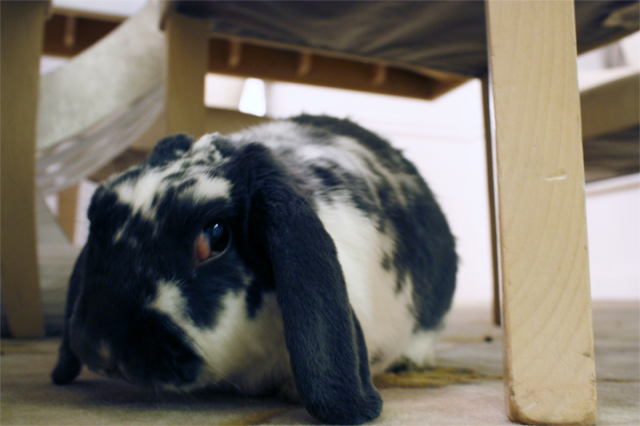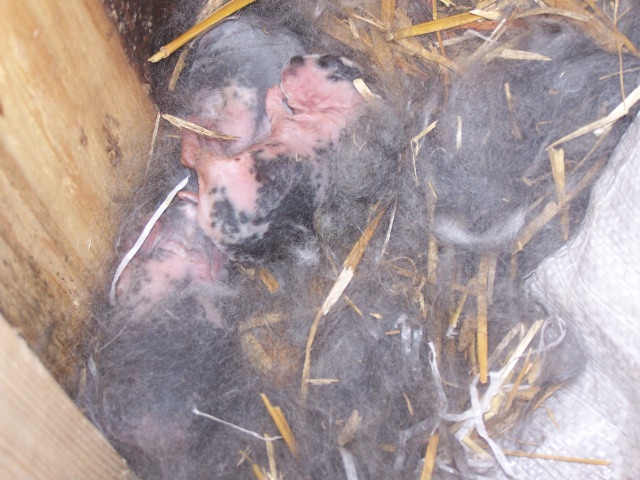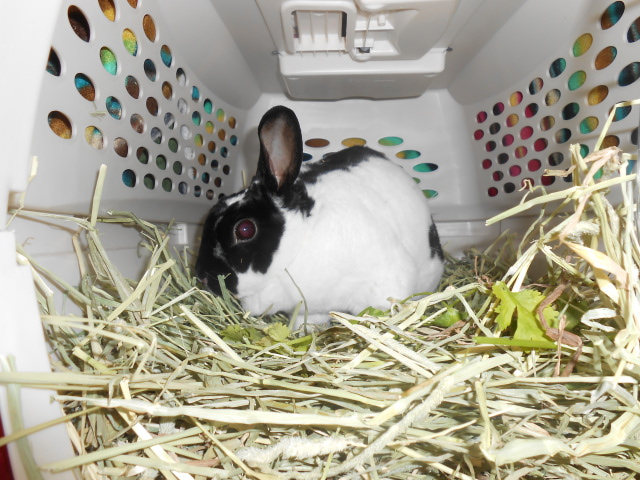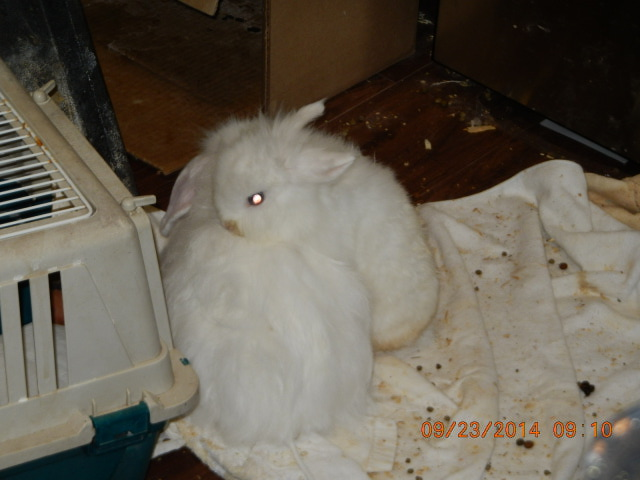QuestionHi,
I would really appreciate your help with the following issues:
1. My 3 year old dwarf bunny was recently tested for EC and his titer was very high so my vet recommended treating him with Ponazuril for 30 days and disinfecting the cage twice a week during the treatment. He has no symptoms right now that can be linked to EC. He had a runny eye for a while but that was cleared with Ciprofloxacin eye drops and Metacam. My bunny is not tolerating Ponazuril very well (not drinking enough water in my opinion and he seems more withdrawn especially after taking the medication)and I am wondering if it makes sense to treat him. I read a lot about EC and I know that it is not very well understood, but I am wondering if there is any evidence/chance that treating my bunny now will save him from having an active infection later in life?
2. During my bun's last visit, his vet tried to check his teeth under anesthesia (isoflurane) but apparently he got really congested and he had to stop it. He wants to try it again using antihistamine first and then isoflurane hoping that it will help breathe better during the anesthesia. I am concerned and scared that it might not be safe if he reacted that way before. Is it OK to repeat the same anesthesia that caused respiratory problem before even if he uses antihistamine this time? Am I overreacting?
Thank you very much!
AnswerHi Beata,
It sounds like your vet is rather rabbit-savvy, as Ponazuril is a relatively new treatment option for EC that only really knowlegable vets know about (it's actually an off-label use when given for EC, but the results have been promising!) A positive titer for EC simply means that at some point the bunny has been exposed to it. This doesn't mean that the rabbit is actually harboring the parasite spores in it's body any longer, but it doesn't mean it doesn't have spores that could "come alive" and cause problems for your bunny later on either. There's really no way to know, but because EC can be deadly and difficult to treat later on, it's common to use Ponazuril as a preventive measure. This should kill any spores that your rabbit might be harboring and put your mind at ease that he won't contract it later in life.
As for the isoflurane, this is the best anesthesia option for rabbits we have as of now as the injectible ones are just too harsh for their delicate systems. Rabbits in general do not respond favorably to being anesthetized, in fact I just helped a gentleman the other day who's rabbit was doing poorly after being put under for a tooth extraction. If your rabbit is not having any symptoms of bad teeth (abcesses, poor apetite, pain, drooling) I would personally avoid another round of anesthesia. If the rabbit is suffering from a tooth issue however, then the risk might be worth it at that point. We've raised rabbits (100+ each year counting litters) and have rarely experienced an issue with their teeth. They naturally wear their teeth down as they chew their pellets and hay, so outside intervention is rarely needed. Hope this helps! Best wishes, Lori

 Blocked Tear Duct?
Question
Eye bulge
Hello,
I want to start off by telli
Blocked Tear Duct?
Question
Eye bulge
Hello,
I want to start off by telli
 Rabbit sneezing and very aggressive
Question
Henry
Hello. I am a first time rabbit owner an
Rabbit sneezing and very aggressive
Question
Henry
Hello. I am a first time rabbit owner an
 babies
Question
Picture of there nest
My Holland Lop ju
babies
Question
Picture of there nest
My Holland Lop ju
 What to do for a bun with sour stomach?
QuestionQUESTION: Dear Dana,
Thank you for reading.
M
What to do for a bun with sour stomach?
QuestionQUESTION: Dear Dana,
Thank you for reading.
M
 resting position
Question
2 rabbits
The dwarf often rests on the
resting position
Question
2 rabbits
The dwarf often rests on the